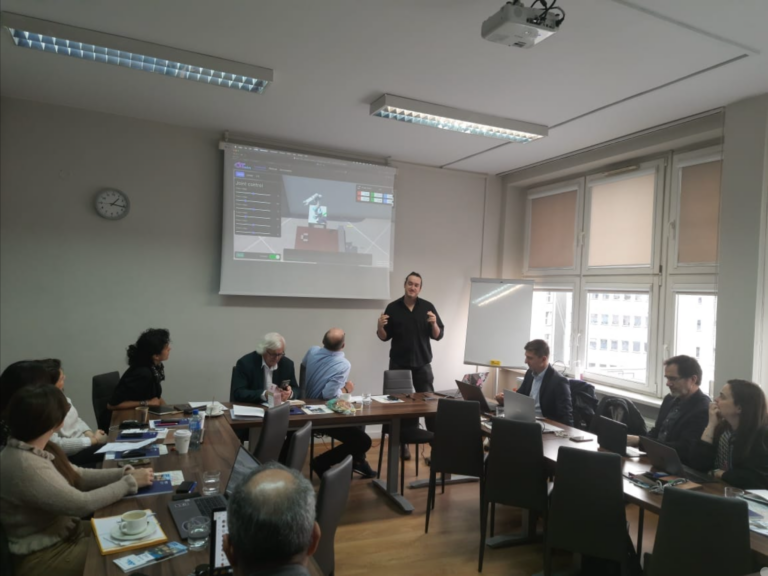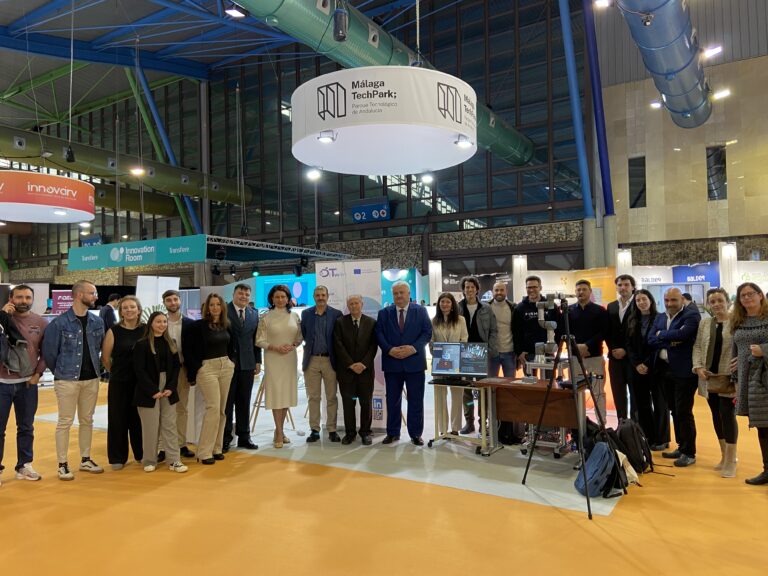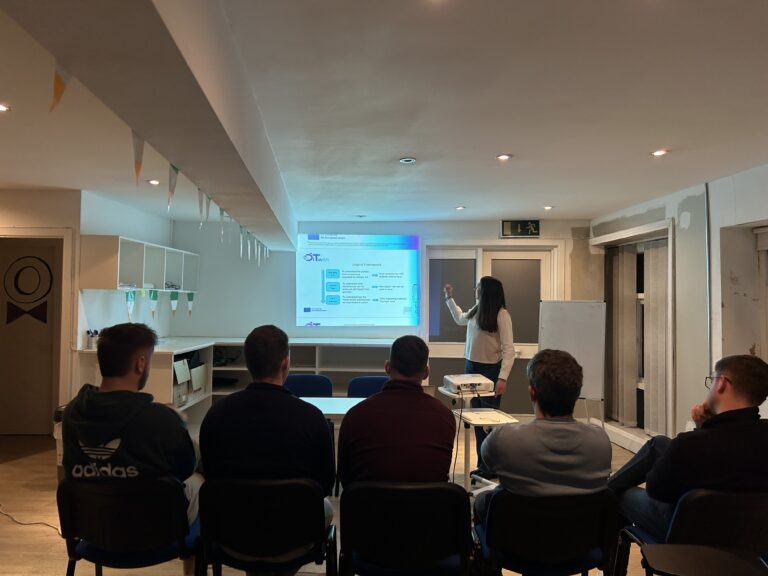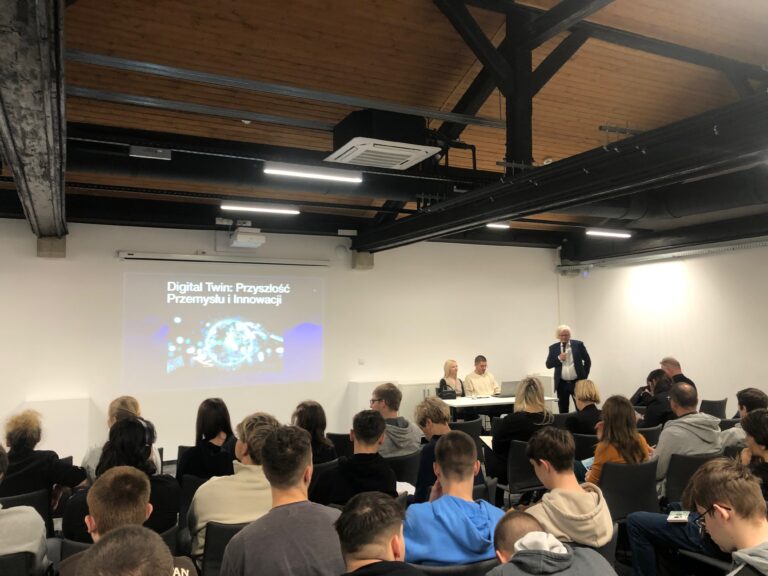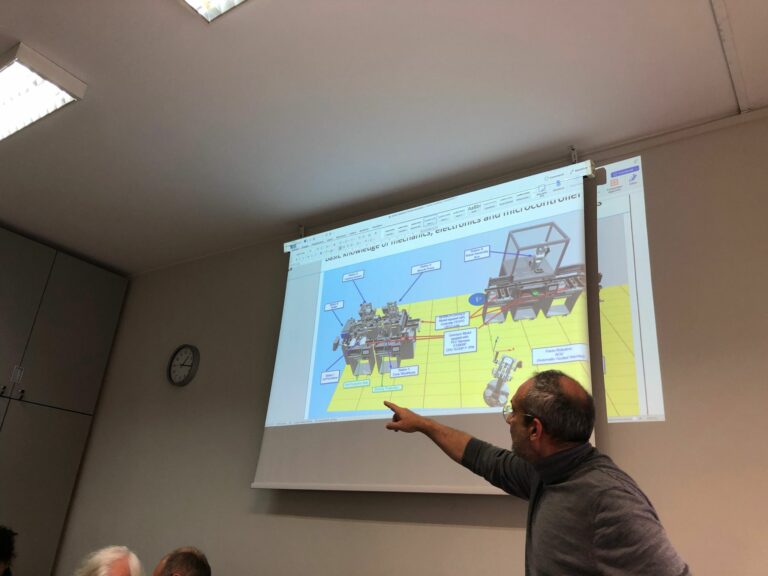Digital Twin for VET schools
The project
DiTwin – Digital Twin for VET schools is a 2 year Cooperation Partnership project in vocational education and training sector (KA220-VET) funded under the Erasmus+ Programme.
The main project objective is to improve the effectiveness of VET curricula for achieving the competencies needed by Industry 4.0. The project intends to bridge the gap of facilities and machinery of VET schools by exploiting the potential of Digital Twin technology.
Digital Twin technology enables work-based learning activities well aligned to the last development of manufacturing industries. This will support the adaptation of VET curricula and VET providers’ training offer to actual skills needs and will provide a new educational approach.
The project will enable schools that cannot access advanced tools, machineries and laboratories to implement practical and experiential learning for achieving the competences required by Industry 4.0.
The project will also improve VET teachers’ digital competences to support the implementation of digital-twin based activities and the achievement of digital skills required by industry 4.0
Results

DiTwin Modules
Digital Twins for VET students aiming at developing the competencies needed by
Industry 4.0.

DiTwin Platform
A free online platform allowing teachers and students access and use the
DiTwin Modules at school.

DiTwin Handbook
It provides VET teachers and trainers with tools and educational resources to implement,
support, manage and assess effective Digital Twin-based activities.

DiTwin Transnational Training Course
A Transnational Training Course for VET teachers aiming at developing the needed technical and pedagogical competencies for implementing and managing Digital Twin-basedì activities at schools.

DiTwin Video Tutorial
It is an easy guide for VET teachers on how to implement DiTwin Modules in class.

DiTwin Demo Event
It is an online workshop presenting the DiTwin platform and its use.
News
DiTwin Project Update: New Developments in Digital Twin Implementation and Training
After months of intense collaboration between partners, the DiTwin project is reaching a crucial milestone. The collective efforts invested so far have laid a solid foundation, allowing the project to consolidate the results achieved and take another decisive step towards its final goal. By harnessing the potential of Digital Twin technology, DiTwin is shaping new educational methodologies that bridge the gap between innovation and practical application in the vocational education and training (VET) sector. The focus over the coming months will shift to implementing the DiTwin modules. This phase is a unique opportunity for participants to apply Digital Twin technology in real-world scenarios and explore its technical and pedagogical potential. The implementation will provide valuable insights into how this innovative approach can enhance experiential learning, making education more immersive, dynamic, and aligned with the evolving needs of Industry 4.0. In addition, the partnership is working on the implementation of WP3, “DiTwin Backpack”, a dedicated initiative designed to support teachers in acquiring the knowledge, skills, and competences needed to implement, lead, and evaluate practical and experiential learning through Digital Twin-based activities. These are the main activities foreseen by WP3: With these key activities, the DiTwin project is not only advancing in its technological implementation but also fostering a strong community of educators ready to embrace the future of digital learning. As the project moves forward, the partnership remains committed to ensuring that Digital Twin technology becomes an accessible and practical tool for teachers and learners alike, driving innovation in education across Europe. Stay tuned for more updates!
Read MoreDiTwin Multiplier Event showcased in Málaga during Transfiere 2025
On Wednesday, March 12, the Spanish Multiplier Event of the European DiTwin project took place in Málaga, during Transfiere 2025 — the largest European forum for R&D and innovation in Southern Europe — which gathered more than 4,500 professionals from over 1,500 companies and institutions. The event, organized by Málaga TechPark and the University of Málaga, brought together 50 participants, mainly VET teachers, headmasters, academic lecturers, and representatives of international organizations. The session began with presentations by Sonia Palomo (Málaga TechPark) and Víctor Muñoz (University of Málaga), who introduced the DiTwin project and highlighted its role in fostering digital innovation in vocational education and training. Attendees also had the opportunity to take part in a hands-on demonstration at the Málaga TechPark stand, where they explored the robot developed by the University of Málaga as part of the project and experienced first-hand how Digital Twin technology can be integrated into teaching environments. DiTwin’s presence at such a large international innovation event reinforced its position as a reference initiative for the digital transformation of education and helped strengthen connections with industry and education stakeholders. The insights and contacts gathered during the event will contribute to further refining the DiTwin modules and supporting their adoption in vocational training across Europe. The Project continues to move forward in its mission to equip teachers and students with the digital skills required by Industry 4.0.
Read MoreFocus Groups Across All Partner Countries
In January 2025, focus groups meetings for the European DiTwin project took place across all participatingcountries (Ireland, Spain, Italy, Poland, and Greece). The focus groups followed a shared approach in every country. The sessions, held both in-person and online, brought together VET teachers, technology specialists, and industry representatives and focused on threemain topics: 1. The challenges of aligning VET education with labor market demands and Industry 4.0. 2. The support teachers need to integrate Digital Twin technology into their lessons. 3. The review and improvement of the DiTwin Handbook. The DiTwin project, funded by Erasmus+, aims to introduce Digital Twins into vocational education and training (VET). The meetings with teachers and experts helped identify key needs and refine the DiTwin Handbook, which is a crucial guide for implementing this technology in schools. These discussions provided valuable insights that will help tailor the project’s resources to meet the real needs of teachers. Main Challenges Identified 1. Mismatch between VET Curricula and Industry 4.0: Across all countries, the inflexibility of thecurricula was seen as a barrier to introducing new technologies. In Spain, teachers suggested addingDigital Twin modules during flexible training hours and adjusting practical activities to better alignwith Industry 4.0. In Italy, a lack of collaboration between schools and small to medium-sizedbusinesses (SMEs) was mentioned, as many SMEs struggle to provide the resources needed for partnerships with educational institutions.Strengthening ties between education and industry was emphasized as vital to ensuring that training better matches market needs. In Ireland, teachers pointed out that lessons are mostly theoretical and do not always reflect what industries actually need. There was also concern about the lack of technological training for educators, which limits theuse of innovative tools like Digital Twins. 2. A DiTwin Handbook that meets teachers’ needs: Everyone agreed that the DiTwin Handbookshould offer a simple, clear introduction to Digital Twins and how they can be used in teaching. In Spain, teachers suggested the manual should explain how this technology improves efficiency and predictive maintenance in industry, helping students better prepare for their careers. In Italy, teachers recommended including practical examples of how Digital Twins are used with ManufacturingExecution Systems (MES) to monitor processes in real-time and spot problems. In Ireland, the proposal was to include examples from local industries, ready-to-use modules, practical guides, and accessible software tools, ideally open-source or low-cost. In conclusion, the focus groups for the DiTwin project have been key in identifying what teachers need and improving educational resources. The next step is to update the DiTwin Handbook based on the feedback received and organize teacher training sessions. With this initiative, Digital Twins will become an essential tool in preparing vocational students for the digital skills the future job market will demand.
Read MoreExploring the Future of Education: DiTwin Project Brings Digital Twin Technology to Vocational Schools
On Tuesday, 10 December 2024, the DiTwin project hosted a multiplier event at the stunning Museum of Engineering and Technology in Kraków. The event was attended by 23 vocational school teachers, representatives of foundations, NGOs, specialist vocational education institutions, and 49 vocational school students. The meeting’s agenda included a presentation by second-year journalism students from UKEN, who introduced the concept of Digital Twin technology. Dr. hab. Krzysztof Gurba, a professor at UKEN, also delivered a presentation outlining the DiTwin project’s concept, assumptions, expected outcomes, and current progress. At the conclusion of the event, participants had the opportunity to network and engage with project contributors. The first presentation, focused on explaining what Digital Twin technology is, was delivered by second-year journalism students from UKEN: Kinga Tokarczyk and Mikołaj Kawa. During their talk, they defined a Digital Twin as “a virtual copy of a real object, system, or process.” The students further elaborated on the applications of Digital Twin technology in various fields: They also highlighted the benefits of Digital Twin technology, which include: However, they also acknowledged the challenges associated with its implementation: Dr. hab. Krzysztof Gurba, Prof. UKEN, delivered the second presentation, focusing on the DiTwin project’s relevance to vocational education. He explained how Digital Twin technology can revolutionize education. Prof. Gurba emphasized that the project aims to prepare young people for the challenges of Industry 4.0 and 5.0 by leveraging modern technologies as educational tools. He highlighted the international collaboration behind the project, which includes partners such as Learnable (Italy), Digital Smart (Italy), Innovation Frontiers (Greece), Training Vision (Ireland), Malaga TechPark (Spain), Universidad de Malaga (Spain), and the University of the National Education Commission in Kraków (Poland). The project’s outputs include: Prof. Gurba explained that the project focuses on three key areas: 3D printing, robotics, and process automation. The platform developed as part of the project will offer: To conclude, Prof. Gurba announced upcoming pilot tests and a demonstration event for the system. He invited teachers, institutional partners, foundations, and training organizations to collaborate in developing the teacher handbook. He also announced a focus study scheduled for January 2025.
Read MoreHighlights from the Second DiTwin Transnational Project Meeting
The second transnational meeting of the DiTwin project was held on November 14–15, 2024, in Krakow. During the event, project partners reviewed progress, discussed achievements, and laid the groundwork for future advancements in technical training powered by Digital Twins. Progress Achieved Significant milestones have been reached, including: 1. Competence Framework: Finalized, outlining key roles and skills required for Industry 4.0. 2. Specialized Training Modules: Developed for three critical professional profiles: – Additive Manufacturing Technician – Robot Machines Technician – Automation Technician for Industry 4.0 The meeting included practical demonstrations showcasing the use of Digital Twins to simulate industrial machinery and integrate them with real-world devices. The DiTwin Modules The primary goal of the DiTwin modules is to equip students with the skills necessary to thrive in Industry 4.0 using Digital Twins, digital replicas of physical systems connected to educational laboratories. This innovative approach provides an immersive and hands-on learning experience. Target Professional Profiles The training pathways are tailored to meet the demands of three key roles: – Additive Manufacturing Technician: Specializing in 3D printing technologies and additive design. – Automation Technician: Focused on industrial automation and machine programming. – Robot Machines Technician: Proficient in robotics programming and maintenance. Key Features of the DiTwin Approach – Simulation-Based Training: Allowing students to practice safely in virtual environments. – Digital-Physical Integration: Connecting virtual and real machines to provide practical, hands-on training. This educational approach creates a synergy between theory and practice, preparing future technicians to meet the challenges of an increasingly digitalized and interconnected industrial world.
Read MoreDiTwin second Transnational Project Meeting
The second transnational project meeting will be held in Krakow (Poland) on 14-15 October 2024, hosted by the UNIWERSYTET PEDAGOGICZNY IM KOMISJI EDUKACJI NARODOWEJ W KRAKOWIE. All project partners (Learnable – IT, Digital Smart Srl – IT, PARQUE TECNOLOGICO DE ANDALUCIA – ES, UNIVERSIDAD DE MALAGA – ES, UNIWERSYTET PEDAGOGICZNY IM KOMISJI EDUKACJI NARODOWEJ W KRAKOWIE – PL, ETN Training Vision Ireland – IRL, and Innovation Frontiers IKE – GR) from five countries (Italy, Poland, Spain, Greece, and Ireland) will attend the two-day meeting, with at least two staff members per organisation. The upcoming project meeting will provide an in-depth review of the progress and next steps for the DiTwin project. The agenda will cover the following key topics: To learn more about the project’s advancements, you can follow our Facebook or LinkedIn pages.
Read MorePartners

Learnable is a community of experts working for years on the development of innovative educational practices. Learnable focuses to support European learners in acquiring soft and hard competencies that enable people to achieve their goals both in their work and life. Learnable is active in different sectors such as adult education, VET education, schools and higher education, promoting innovative educational methodologies in different fields such as digital innovation, inclusion, linguistic skills, green economy and entrepreneurship. The community seeks innovative solutions in order to make education accessible and inclusive. Learnable supports the implementation of innovative educational methodologies aimed at enhancing the quality of the training offer and supporting school-to-work transition and employability of the learners.
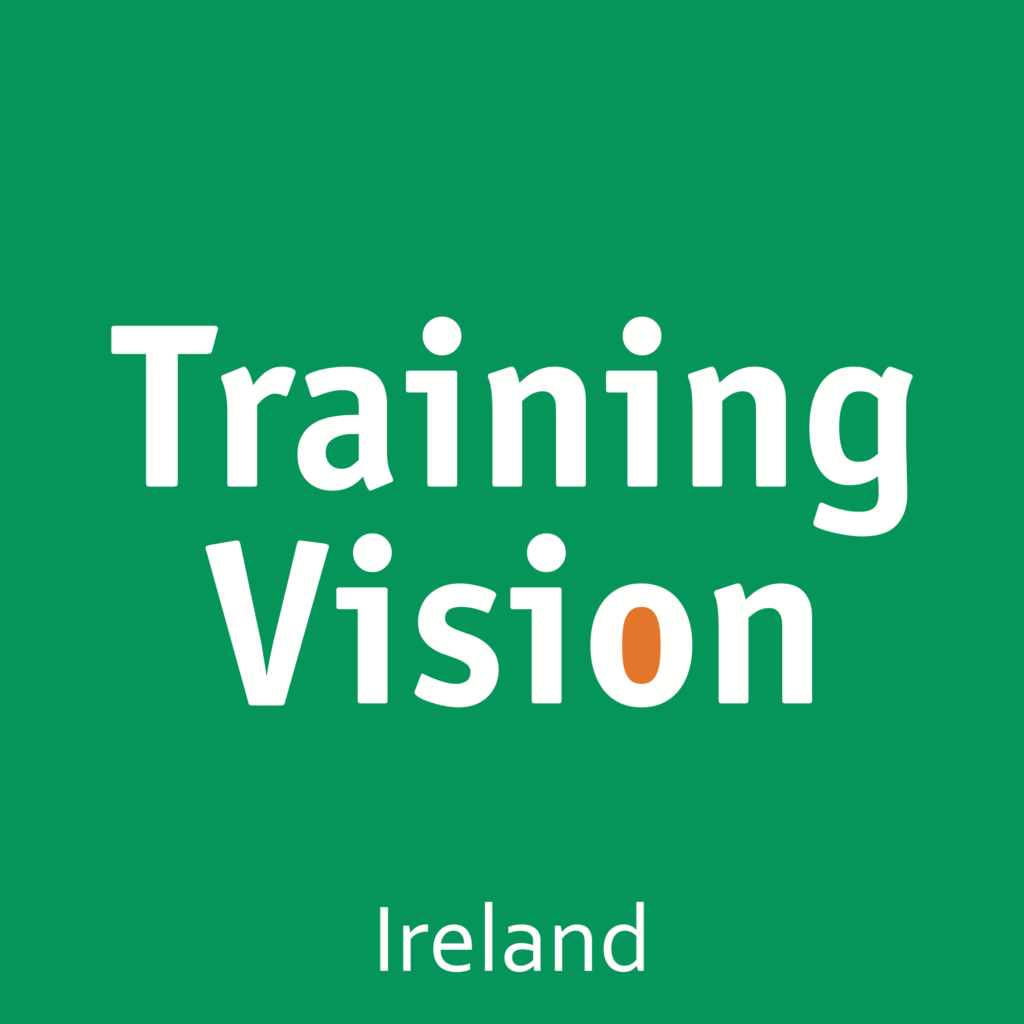
ETN Training Vision Ireland was established in 2016 to help satisfy the growing demand for vocational training and cultural development opportunities in Ireland.
Located in Cork, ETN Training Vision Ireland organises and manages internships and educational programmes for young students, teaching staff, young workers and organisations coming from all over Europe. Training Vision is member of the “ETN Network” (Education and Training Network) with agencies in Spain (Malaga), in Bulgaria (Sofia), Italy (Rimini and Potenza), UK (Portsmouth) Germany (Berlin), Portugal (Lisbon) and Ireland (Cork). In 2016, 2017, 2018 and 2019 ETN was awarded as winner in the Work Experience Provider category of the Study Travel Star Awards in London. An important recognition to the professionalism, quality and attention to all the aspects of the training in mobility.
Training Vision Ireland specializes in fostering the growth and learning of both students and adults in a rapidly evolving world.
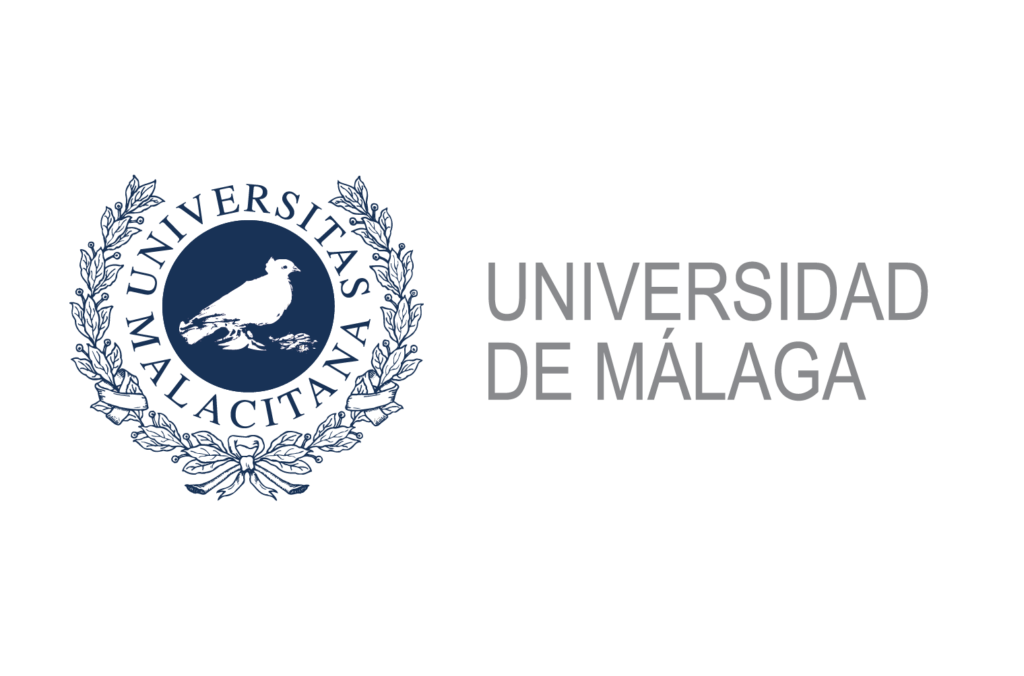
The University of Malaga is an institution that generates and transmits knowledge, providing higher education services through teaching, study and research. It is a dynamic and innovative University, open and participative at the service of society, integrated in the European Higher Education and Research Area, and linked to the business world and the Andalusian Technology Park.
The University Institute for Research in Mechatronics Engineering and Cyberphysical Systems (IMECH.UMA) was created with the main purpose of promoting quality interdisciplinary research and its transfer to society, as well as promoting actions in the field of postgraduate and doctoral studies, and specialized training.
The medical robotics laboratory, which is part of the consortium, has extensive experience in the design and development of surgical robots for clinical use, and in the development of digital twins for industry, and a long history of collaboration with the clinical and business environment.
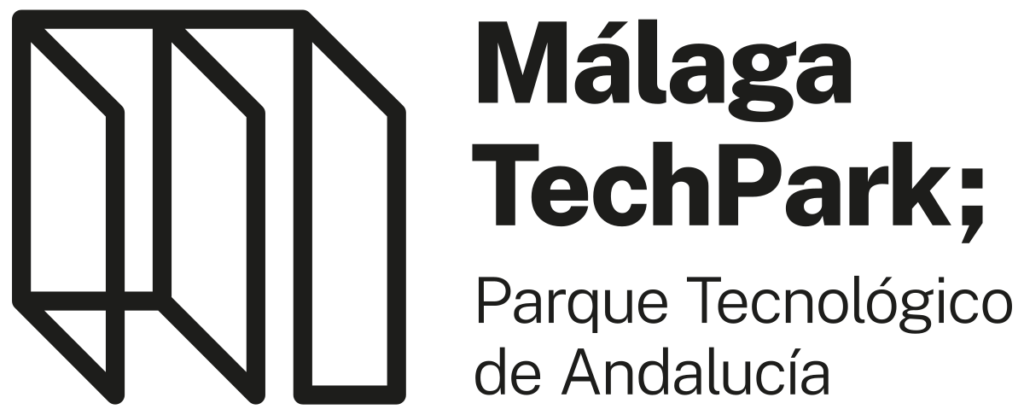
Málaga TechPark, inaugurated in 1992 in Málaga (Spain), has become a great hub of innovative attraction in Andalucía and Europe, with both technology and innovation being key to its development. The Technopolis is an international benchmark that can be described as an encouraging focus of attraction for innovative companies and an ecosystem for high-tech companies and entrepreneurs.
Málaga TechPark has been specially designed to house all types of entities dealing with innovation. The Technopolis is a point of international reference in terms of science and technology parks where the Information Technologies sector dominate, both in Research and Development, and the manufacture of equipment and services, with an innovative and environmentally friendly approach. Other sectors present in the park are energy, engineering, circular economy, industrial, agri-food, biotechnology, among others. With over 650 businesses, and several key agents in the Andalusian Knowledge System, such as the University and its research groups, over 24.000 employees, an area of 200 hectares with an expansion project in progress, the PTA can be considered one of the main focuses for innovation and economic development in Andalusia.
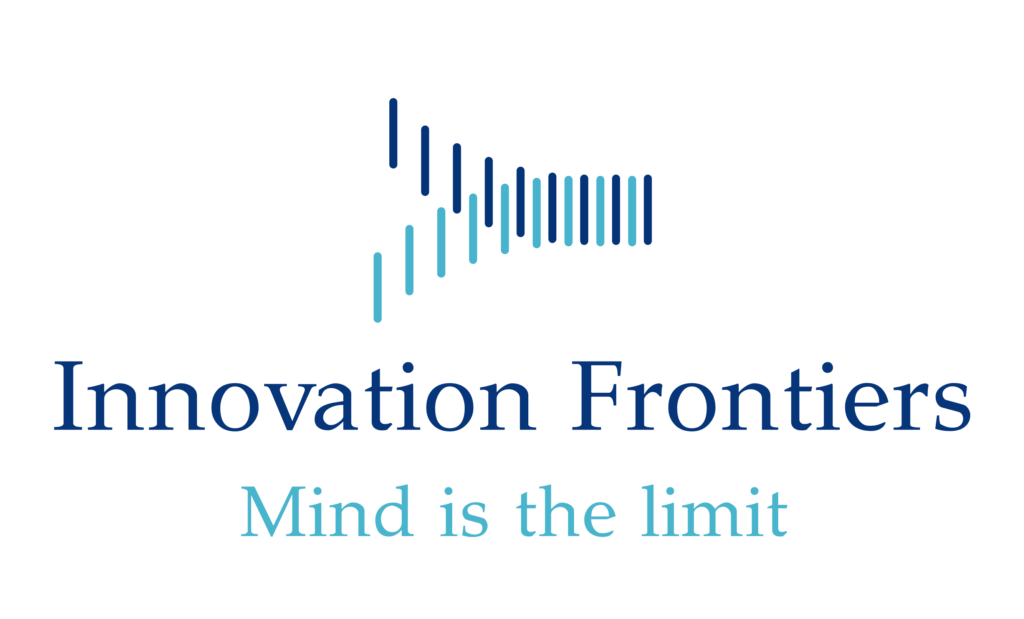
Innovation Frontiers IKE is an innovative educational technology & research company that specializes in creating educational, engaging, and entertaining learning experiences that incorporate innovation, creativity, and gamification to enhance flow for learners. Our company offers a wide spectrum of solutions, including interactive custom eLearning, Serious Games, Open Educational Resources, Training Simulations, Educational Animations and Mobile Learning. We combine game design, game technology, instructional design and psychology to master the art of crafting learning games, simulations and training. Innovation Frontiers IKE also has a very big experience on research projects (European & International). The company follows very strict & complete Quality Assurance Processes in the development of its software and in the running of European & International Projects it takes part. What is more the company integrates the implications of educational neuroscience in classroom so as to improve the efficiency of learning and teaching.

Digital Smart is a Vet provider engaged in professional training for the digital transformation of manufacturing companies. It operates in the Marche region and, for the training of workers, has expanded its action in central Italy. It was founded by IT consultants with more than twenty years of experience in fundraising and capacity building, business creation and career guidance.
Digital Smart manages an Academy that hosts a two-year high training course entitled “Smart Robotics, Corporate Digitalization and 3D Design and organize custom courses and tailor-made corporate academies, whose goal is to train Superior Technicians, with knowledge and skills on the enabling technologies of Industry 4.0
In Digital Smart’s headquarter there are high-tech training rooms, mechatronics laboratories including a Cyber-Physical Factory, Industry 4.0.
Digital Smart is also member of a national consortium named “Italian Innovation for Work”, composed by VET institutions and training academies.
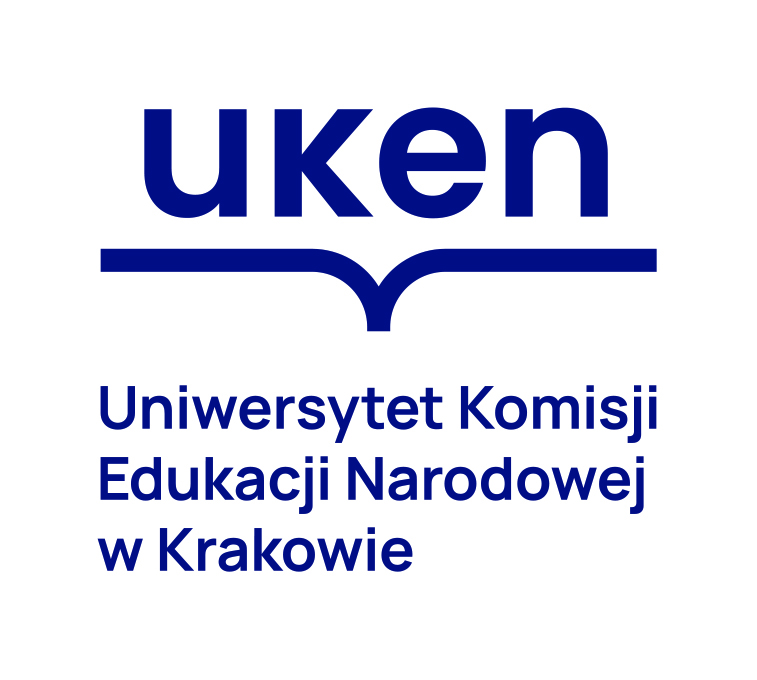
For over 75 years University of the National Education Commission, Krakow has taken the lead among pedagogical higher education institutions in Poland, and it is also the oldest Pedagogical University in Poland. It is exceptional because of its high prestige, professional education and modernity.
The mission of the University of the National Education Commission, Krakow is exercised by professional and experienced teaching staff who apply modern and up to date teaching content. It is also expressed through scientific research, outlining new fields of scientific development, transmitting knowledge, and developing and enriching the personalities of its graduates by educating them according to the highest European standards.
To our students we offer the latest achievements in the Humanities, and also in Social, Educational, Natural, Technical and Art studies. Our educational provision enables students to apply to several dozen fields of studies in first-cycle (Bachelor’s) and second-cycle (Master’s) degree programmes, as well as in third-cycle degree studies (Ph.D.), and post-graduate study courses.

